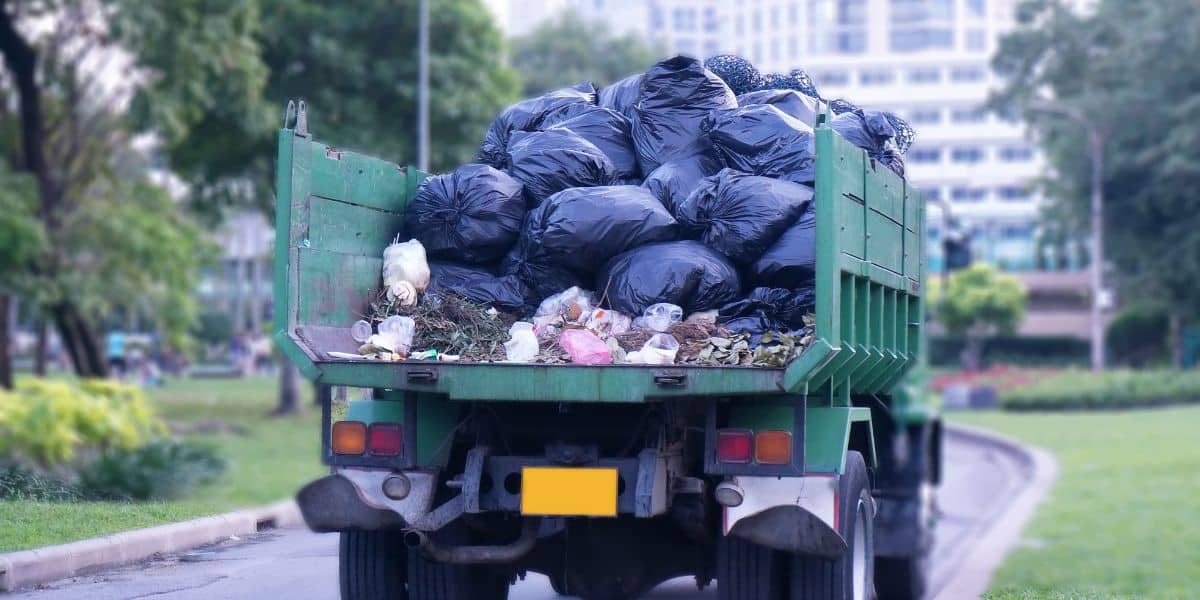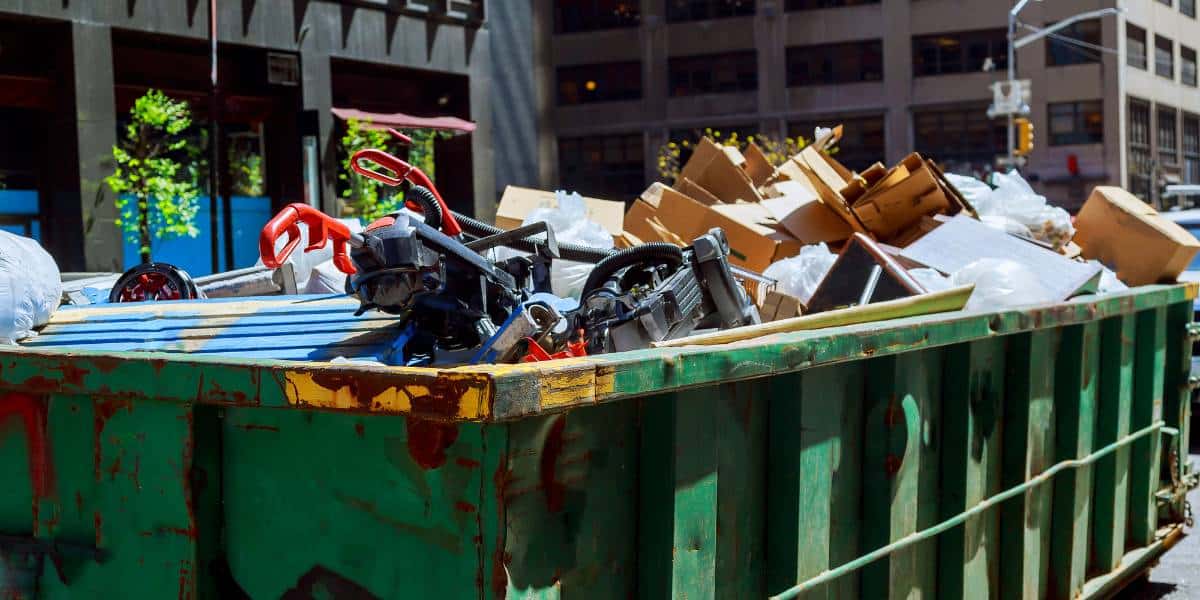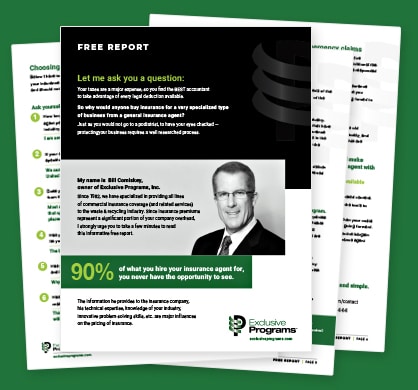In the fast-paced world of business, entrepreneurs face a myriad of challenges, from managing day-to-day operations to navigating regulatory requirements. One crucial aspect often overlooked is ensuring the safety and well-being of employees. As a business owner, you may have asked yourself, “Does my business need workers comp insurance?” In this comprehensive guide, we’ll delve into this question, shedding light on the importance of workers’ compensation insurance and its implications for businesses, particularly those in the waste and recycling industry.
Understanding Workers Comp Insurance: Does My Business Need Workers Comp Insurance?
Workers’ compensation insurance is a fundamental component of business risk management. It provides financial protection to employees who suffer work-related injuries or illnesses by covering medical expenses, rehabilitation costs, and lost wages. Moreover, it shields employers from potential lawsuits arising from workplace injuries, fostering a safer and more secure work environment.
For businesses in industries like waste and recycling, where employees are exposed to various hazards, workers’ comp insurance is not just a legal requirement but a strategic investment. Garbage collection companies, in particular, operate in high-risk environments, with employees facing dangers such as heavy machinery, hazardous materials, and repetitive tasks that can lead to injuries over time.
The Importance of Workers Comp Insurance
Imagine a scenario where a worker in your garbage collection company sustains a severe injury while on duty. Without adequate workers’ compensation coverage, your business could face substantial financial liabilities, including medical expenses, disability benefits, and legal fees. Moreover, failure to provide compensation to injured employees can damage your company’s reputation and employee morale, leading to decreased productivity and increased turnover.
By investing in workers’ comp insurance, businesses demonstrate their commitment to employee welfare and compliance with state regulations. In Florida, employers in the waste and recycling industry are required to carry workers’ compensation coverage for their employees, ensuring that injured workers receive timely benefits and medical care. Failure to comply with these requirements can result in penalties and legal consequences, jeopardizing the financial stability of your business.
How Much Does Workers’ Comp Pay for Lost Wages in Florida?
One of the critical aspects of workers’ compensation insurance is its coverage for lost wages. In Florida, the amount paid for lost wages depends on several factors, including the severity of the injury and the employee’s average weekly wage. Typically, workers’ comp pays two-thirds of the employee’s average weekly wage, up to a specified maximum limit.
For example, if an employee in your garbage collection company suffers a work-related injury that prevents them from working, workers’ compensation insurance would provide them with a portion of their lost wages to help cover living expenses during their recovery period. However, it’s essential to note that there are caps and limitations on the duration and amount of wage benefits provided under workers’ comp insurance.
Benefits of Workers Comp Insurance
Apart from providing financial protection for employees and businesses, workers’ compensation insurance offers several other benefits. Firstly, it promotes a safer work environment by incentivizing employers to implement safety measures and training programs to prevent workplace injuries. Additionally, workers’ comp coverage can enhance employee loyalty and morale, as workers feel reassured knowing that they are protected in the event of an injury.
Furthermore, having workers’ comp insurance in place can improve your business’s reputation and credibility in the marketplace. Potential clients and partners may view your company more favorably, knowing that you prioritize employee safety and comply with legal requirements. Moreover, workers’ comp insurance can help mitigate the financial impact of unexpected accidents or injuries, allowing your business to maintain stability and continuity even during challenging times.
Navigating Workers Comp Insurance Options
When it comes to workers’ compensation insurance, businesses have several options to consider. Working with an experienced insurance provider like Exclusive Programs, Inc. can help you navigate the complexities of workers’ comp coverage and find the best solution for your business needs. From evaluating coverage options to managing claims and compliance, our team of experts is committed to helping you protect your business and employees.
How to Get Workers Comp Insurance in Florida
If you are wondering how to get workers comp insurance in Florida, it’s important to note that it involves several steps. Firstly, businesses need to identify a reputable insurance provider with expertise in workers’ comp coverage. Exclusive Programs, Inc. offers tailored insurance solutions for businesses in the waste and recycling industry, providing expert guidance and competitive pricing.
Next, businesses must assess their coverage needs and budget constraints to determine the appropriate level of workers’ comp insurance. Factors such as the number of employees, the nature of business operations, and previous claims history can influence insurance premiums and coverage options.
Once the insurance provider has been selected, businesses can proceed with the application process, which typically involves completing an application form and providing relevant information about the business and its employees. Exclusive Programs, Inc. simplifies the application process, offering personalized support and assistance to ensure a seamless experience for clients.
Final Thoughts
In conclusion, the question of “Does my business need workers comp insurance?” is not just a legal obligation but a strategic imperative. For businesses in the waste and recycling industry, where employee safety is paramount, workers’ comp insurance provides essential financial protection and peace of mind. By investing in workers’ comp coverage, you safeguard your business against potential liabilities, ensure compliance with state regulations, and demonstrate your commitment to employee welfare.
As you navigate the complexities of business insurance, Exclusive Programs, Inc. is here to provide expert guidance and tailored solutions to meet your unique needs. Contact us today to learn more about how we can help protect your business and employees with comprehensive workers’ compensation insurance coverage. Remember, your employees are your most valuable asset—ensure their safety and well-being with workers’ comp insurance.









